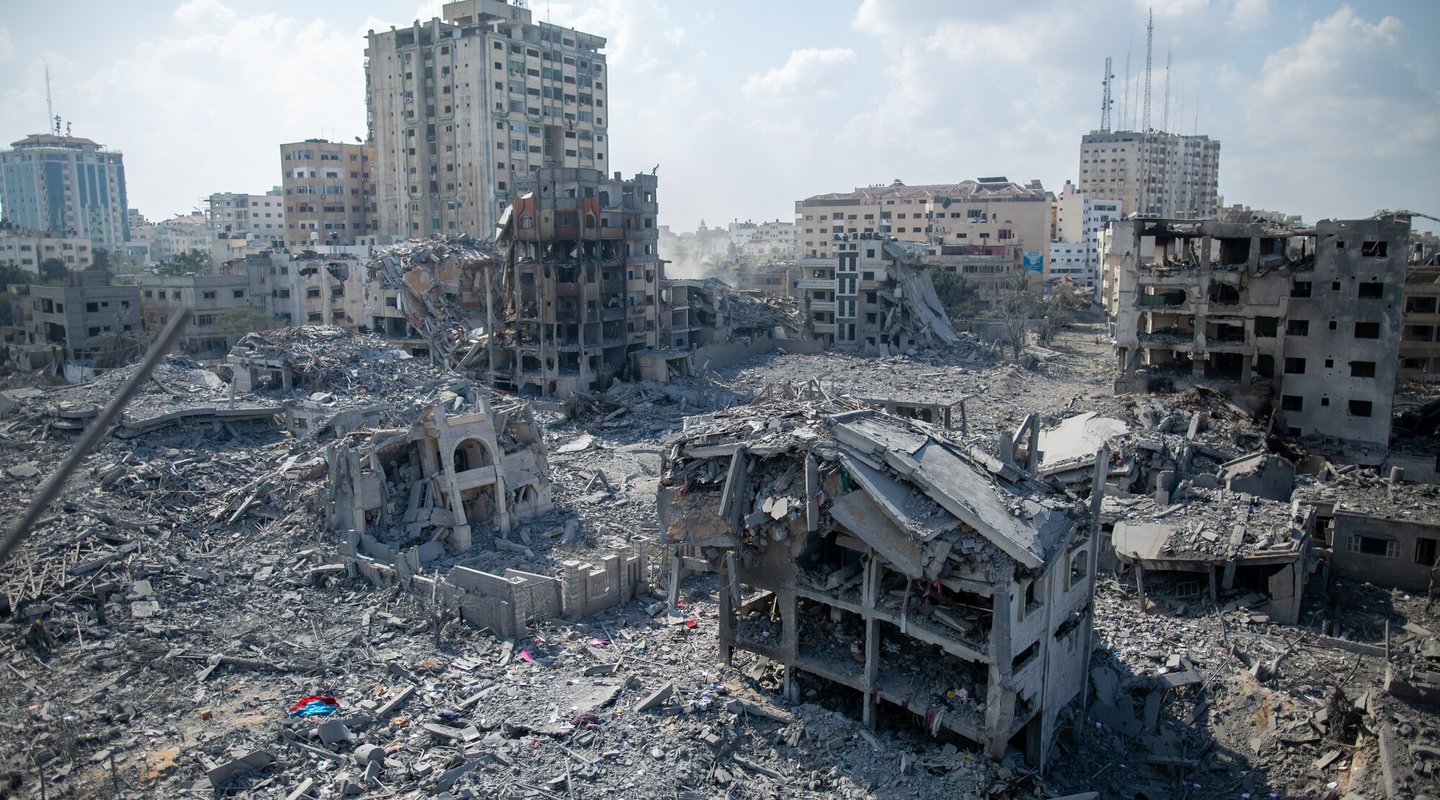
The aftermath of Israeli airstrikes in Al Remal, Gaza, October 2023. Photo: Marwan Sawwaf/Alef Multimedia/Oxfam
Conflict causes and worsens inequality. It damages infrastructure, limits resources, and breaks communities apart. And it hits the world’s most marginalised people the hardest.
So how do we build peace in our divided world?
It’s a huge question but we can start to tackle it together. In this short blog post, we’ll share six ways to build peace.
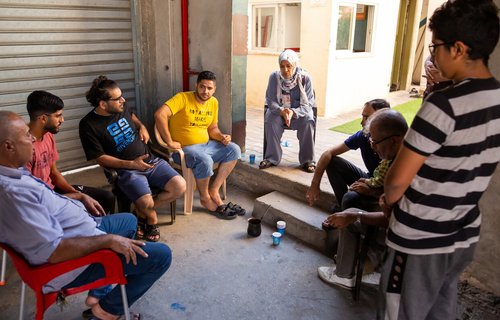
1 Share resources fairly
Everyone deserves equal access to resources like land, water, and food. But these resources become – or are made – scarce.
Some people don't have, or are denied, access to natural resources. Like in Gaza where starvation is being used as a weapon of war against civilians.
We can call for resources to be shared more fairly.
Resources can be better allocated and shared as a long-term solution to inequality. And we can all help build a culture of sharing.
Huwaida works for Oxfam’s partner in Gaza, CFTA. After being forced to leave her home, she shared resources amongst others displaced by conflict.
We evaluated essential supplies, even though there was no funding. And we supported each other by contributing efforts, skills, and money. We rely on a form of social solidarity. We prepare food for everyone: children, adults, and older people. People also help each other to get water.”
Huwaida, Gaza
Sharing can start with small but meaningful acts of care. This builds a community where everyone feels valued.
It can seem like profit and power matters more than people do. And that our worth relies on how much we have, rather than what we do and how we treat people.
When we're taught that resources are scarce, we see others as competition when we should be co-operating.
Embracing the idea of sharing is a step toward a more peaceful and empathetic world.
Whether it's food, money, time or skills – sharing builds and strengthens community.
Help challenge the mindset that money or power matters more than people. Donate to Oxfam today.
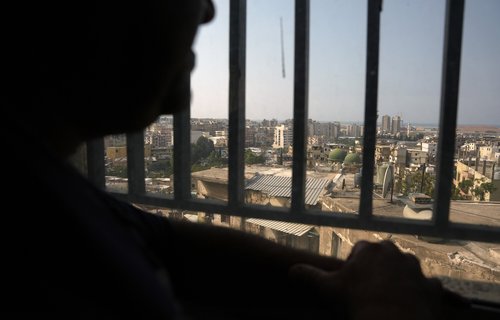
2 Prevent crisis upon crisis
People need more than short-term solutions when they're dealing with long-term problems.
We support partners and communities to address root causes of inequality.
For example, in the DRC we work with APDIK – an organisation that challenges inequality to create long term impact.
They work with women farmers in South Kivu, supporting them with things like agriculture, leadership, and economic empowerment. Skills and knowledge are passed on, helping to create a better future for coming generations.
Marie Nsimire, farmer and participant of the BMZ project which helps women farmers earn a better living. Here she stands next to the pigs she acquired through the project. Credit: Narcisse K Chibangu / Oxfam
I was just a small business woman selling flour to feed my kids a little profit. But now I have taught 10 other women my business too. I started with just 10,000FC capital, but now I have 250,000FC saved progressively in my box to use for family needs or invest more.”
Marie Nsimire, farmer and businesswoman
Support must be wide-reaching and long-lasting. We've got to tackle the structures behind inequality, not just its symptoms.
You can fund long-term solutions and build a peace that lasts by donating to Oxfam.
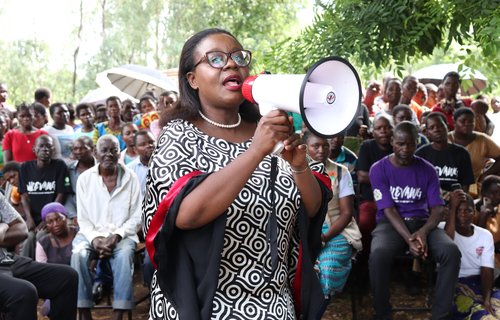
3 Stop normalising violence
Violence is made normal to us from the moment we’re born. Like the ideas we’re taught about gender.
Ideas about gender differ everywhere. Patriarchal societies – including the UK – encourage the idea that men are naturally “aggressive”, that “this is just how men are”. This isn’t true.
Encouraging damaging ideas about masculinity and violence creates a society that expects men to be aggressive. Resulting in real violence against women and LGBTQIA+ people.
We’re less likely to find this violence shocking because it seems ‘normal’. We might not respond to it or recognise it as a problem.
In the global north, we see violent conflict daily in the media. This makes it seem normal, reduces our empathy or makes violence seem ‘natural’ in certain communities.
But people experiencing violence deserve care and support.
We shouldn’t accept violence as normal. We need to have empathy for others and speak out against violence.
A donation from you can support people facing violence and conflict. Donate today.
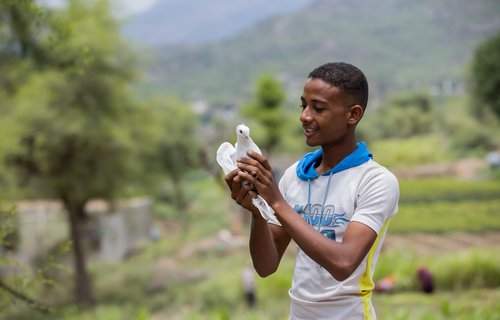
4 Peace led by the people
We need a world where everyone can be heard – particularly people facing inequality due to their identity, race, or gender.
When people are already discriminated against, being made to feel voiceless prevents them from living the life they deserve.
There are many ways that somebody is made voiceless, from their personal relationships to wider society.
Mahmoud Khattab/Quds Net News via ZUMA Wire/Shutterstock
Certain groups have fewer political rights. For example, Palestinians living in areas occupied by Israel are not allowed to vote in elections.
Being denied a voice means it's harder to get justice. Without a political voice there's little power to influence change.
Preventing protest takes away people's opportunity to raise awareness about injustice.
If we have the power to speak out, we should speak up for those who don’t.
We campaign for global justice. Challenging global power structures creates a world where everyone has an equal voice.
We can all use our voice to bring about peace.
Like calling out harmful comments in everyday conversations. Or signing petitions, writing letters to those in power, and refusing to buy products from unethical companies.
Everyone deserves an equal voice within society.
Help build peace led by the people. Donate today.
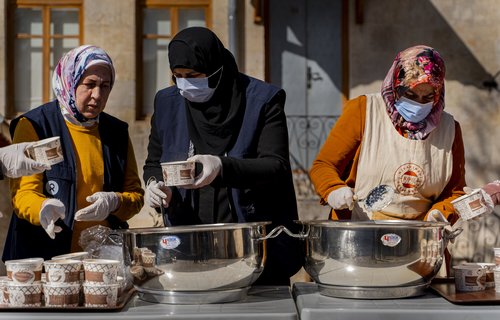
5 Community led emergency response
When the world is divided, it's essential that we work together.
Communities must play a central role in shaping emergency support. Our emergency response is built around the people - leading to long-lasting peace.
Charities like Oxfam have a history of overpowering communities they’re supposed to be supporting.
Often, we've brought in our own ideas, rather than listening to what people need. This happens when we think we know better.
Peace can’t be built by replicating colonial practices and ways of thinking.
We can undo this harm by ensuring emergency support doesn’t disempower people.
In our own lives, we can support people around us by listening and caring for them according to their needs. As well as supporting community initiatives and businesses.
Centring the voices of people most impacted by injustice builds stronger communities.
Help build stronger communities in the face of injustice. Donate today.
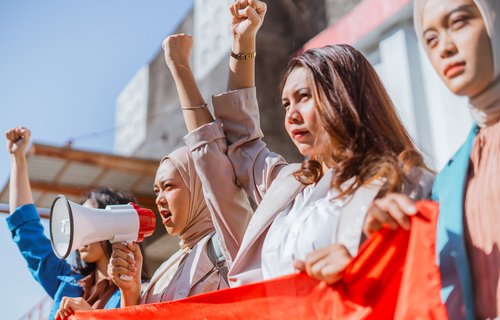
6 Make the local global
When it comes to injustice around the world, not all stories are shared.
Important voices are overlooked because of power imbalances that say which issues are worthwhile.
Acting in solidarity with activists and smaller organisations means no one's left behind.
Conflict and crises around the world may seem distant. But they destroy people’s lives. They’re no less important than what's happening locally.
Our media isn’t fully fair or balanced, impacting news coverage.
For example, climate disasters badly affect low-income communities in the global south. But it’s in the interest of big companies to downplay the seriousness of climate change.
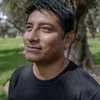
“I see this campaign as a way to go further as an activist.”
Pavel Martiarena, Climate Activist, Peru
We are connected to people all over the world in a shared fight.
Inequality isn’t just happening ‘somewhere else’.
By speaking out against how inequality – like racism, sexism, homophobia – impacts our local communities, we’ll be helping to address something that affects many people all over the world.
Thinking globally allows us to create a fairer, kinder world for everyone.
Be part of a global community, shared in the fight against inequality. Donate today.
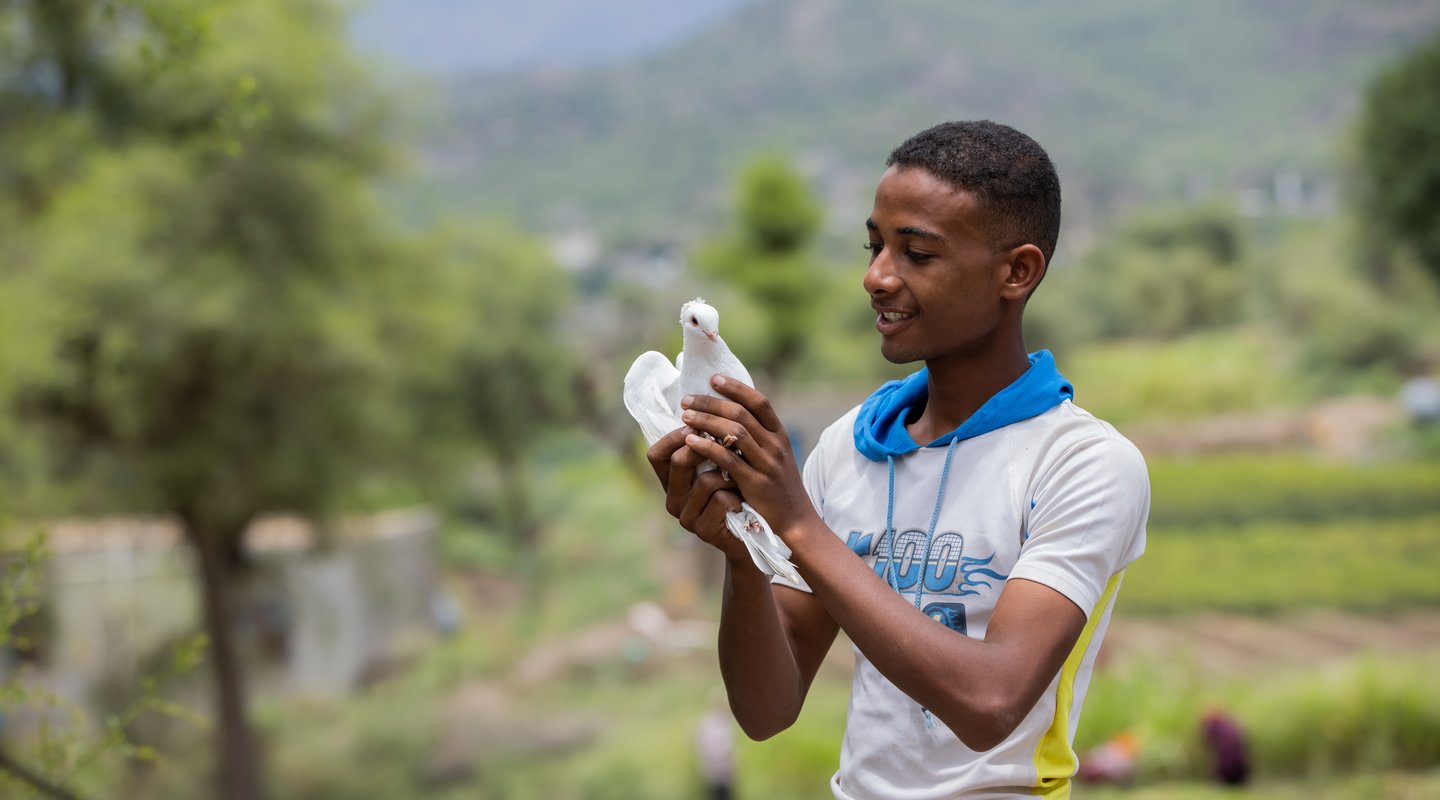
Munadhel, Yemen